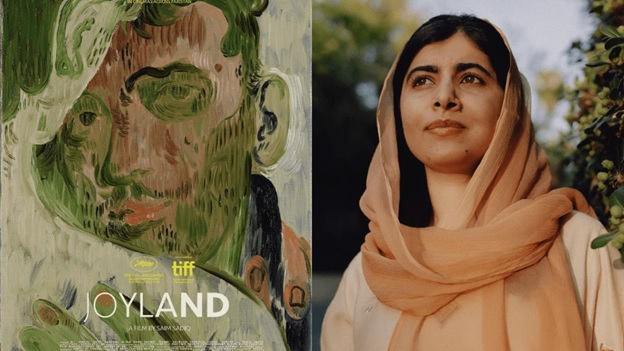
It’s Art, Not Activism Or a Call to Action, Says Malala about Joyland
The ban on film Joyland may be getting reversed but it is important to understand why the ban was uncalled for in the first place. In her piece for Variety, Nobel laureate Malala Yousafzai talks about how the film is a piece of art, not an argument for or against something. It is a love letter to Pakistan, a mirror for Pakistani people discussing the yearning for freedom and the damage the patriarchy causes, among other things.
“ Joyland is not activism posing as art,” she wrote. “It doesn’t argue for a particular point of view or issue a call to action. The film treats each character with compassion, from the ageing grandfather imposing his will on his family to the young wife who wants more than the men around her are willing to give.” She described it as a film that is about the ways in which patriarchy hurts everyone — men, women and children. Shedding light on underrated things like “the healing powers of female friendship and solidarity”, the film also weighs the cost of prioritizing people’s opinions over one’s dreams.
She talked about how the movie celebrates Pakistani culture — its food, fashion and most of all, its people. In an ironic turn of events, it is being branded as something immoral that “portrays a negative image of our country”. In reality, the film is reflective of the Pakistani people, their desire for freedom and fulfilment and their way of finding joy in the little things every day.
The education activist said we expect art to serve as a means for public relations — we use it to rectify the negative image that the world has us of us. The content that flies in Pakistan is “stories that cast ourselves as unequivocal heroes” which reduces the storyline to men as saviors who defeat their enemies and women as sappy lovers who don’t care about much else. “A numbness sets in as we collectively decide we would rather believe the fantasy than look in the mirror,” wrote Malala. She said instead, we deny stories like Joyland which uplift marginalized communities and break free of “rigid social norms”, refusing to look in the mirror.
Not only does the ban bury Pakistani talent alive, it also limits Muslim representation. Twenty-five per cent of the world’s population is Muslim but only one per cent is shown in popular TV series. That too is a negative representation, often equated with terrorism. “Audiences must also be open to the truth when our filmmakers reveal it,” said Malala, asking Pakistan to give Joyland a chance and let it in.
Joyland was banned from a cinematic screening in Pakistan a few days back. The Ministry of Information & Broadcasting canceled its exhibition license which was issued months ago after receiving complaints that “the film contains highly objectionable material which do not conform with the social values and moral standards of our society”. This resulted in a backlash by the cast and crew, celebrities and netizens alike.
In response, PM Shehbaz Sharif formed a special committee to evaluate complaints filed against Joyland. On Wednesday, the government decided to clear the movie after a second review. Despite the clearance, on Thursday, the Punjab government backtracked and announced that it is banning it again in Punjab.
Joyland has the distinction of being Pakistan’s first Cannes entry, bagging several awards at international film festivals and being chosen as Pakistan’s Oscar consideration nominee. – Images

